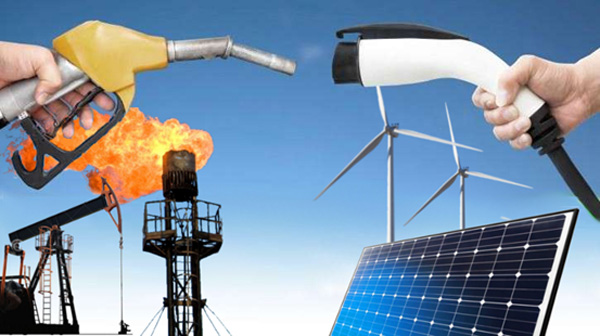EV roadmap: Conundrum continues
State think tank Niti Aayog’s Vice Chairman Rajiv Kumar has said “India needs EV policy, a lot has been done, cabinet note has been prepared”. This, days after government scaled down EV target from 100% to 30%, and had earlier simply refused to have an EV policy. Kumar said EV policy is a must to deliver a “brand new transport model”. Ministries and markets can’t be “working in silos”, he said. The road-map “confusion” apart, government wants industry to set up battery manufacturing units and charging stations, while state aggregates demand for EVs.
India EV market ‘doubled in 2017’, to grow more
Meanwhile, India’s EV market ‘doubled’ in 2017 (2,000 electric cars sold). Sales are set to increase this year as government and fleet operators are expected to place large orders and electric bus market grows rapidly. Big players such as Hyundai, Maruti Suzuki, Tata Motors, Mahindra & Mahindra, Ashok Leyland and BYD have plans to launch EVs in India.
Myth buster: lack of cars, ‘not infrastructure’, blocking EV sales
New analysis shows EU consumers are buying less EVs (1.4% sales in 2017) because there aren’t enough electric cars in the market, not because of lack of chargers. There are enough chargers until 2020, the study says. The European average also points to hugely underserved areas, like India, where more aggressive electromobility is the need of the hour.
Myth buster: EVs charged on fossil fuel do not pollute more
Latest research has busted the myth that EVs that run on fossil fuel electricity are more polluting. The study reveals that electric vehicles, in any energy mix (oil well, coal train, lithium etc.), emit less CO2 than diesel/petrol/gas vehicles. However, if EVs use renewable power they will be emission-free in the real sense, else they are not entirely emissions-free. According to Bloomberg data China, whose EV market accounts for 40% of all sales globally, drives the most emissions-intensive electric cars. The majority of China’s electricity comes from coal.
Ikea’s first India store to have 20% EV fleet
Furniture giant Ikea will launch its first India store in Hyderabad with 20% of delivery vehicles comprising EVs, which will rise to 40% in 2019 and 60% in 2020. The Swedish firm will build chargers at its Hyderabad store.
Volkswagen’s global EV venture snubs India
World’s second largest carmaker VW is set to expand EV production to 16 countries by 2022. The 20 billion euro plan includes partnerships with battery manufacturers in Europe and China, 3 new EV models in 2018, and an EV “every month” from 2019. But for India, VW says it is “too early” to launch EVs as the country lacks technology and imposes import duties.
Delta chargers for India, China’s Swedish EV venture
Taiwan-based Delta Electronics will invest over $150 million to develop chargers across India, in parking lots, highways, residential and commercial buildings. Delta launched its fourth manufacturing unit in Krishnagiri in Tamil Nadu. Meanwhile, China’s GSR Capital is investing $500 million in Swedish EV manufacturing firm NEVS. GSR will make EV batteries on NEVS premises in Trollhättan, Sweden.
Biggest Battery: Metal Tycoon to beat Musk, coal lobby looms
Sanjeev Gupta (Simec Zen, UK’s GFG Alliance) is set to snatch the world’s biggest battery title from Elon Musk (Tesla) with his 120 MW lithium ion battery at Port Augusta, in South Australia. The proposed battery exceeds Musk’s 100-megawatt unit in the same state. The British billionaire hopes to provide grid stability to the region that is run on clean renewable power, now under threat of coal-backing new Liberal party government.
Panasonic India: Profiting on Lithium-ion batteries
Japanese electronics giant Panasonic is upbeat over its lithium-ion storage business in India. The firm’s energy systems head says the batteries have reduced the polluting diesel generators to emergency backups. Panasonic supplies lithium-ion batteries to 40,000 telecom towers in the country. Their actual requirement is very brief_ during power cuts.
Electric carmakers in ‘rare’ roadblock?
A recent study has warned EV manufacturers against a battery roadblock, saying that supply of required rare materials (lithium, nickel, cobalt) will dry up. “By 2025, the economics of recycling is likely to improve as used batteries become more commonplace and second-hand batteries take root,” researchers said.
About The Author
You may also like
New report shows ways to build an efficient e-bus ecosystem in India
Corporate watchdog accuses Toyota of misleading marketing, greenwashing
Electrifying India’s Roads: Financing EVs – Challenges, Progress and the Road Ahead
Five lithium and cobalt mines identified in overseas exploration
India approves $7 billion plan for 10,000 electric buses in 169 cities in next 10 years


